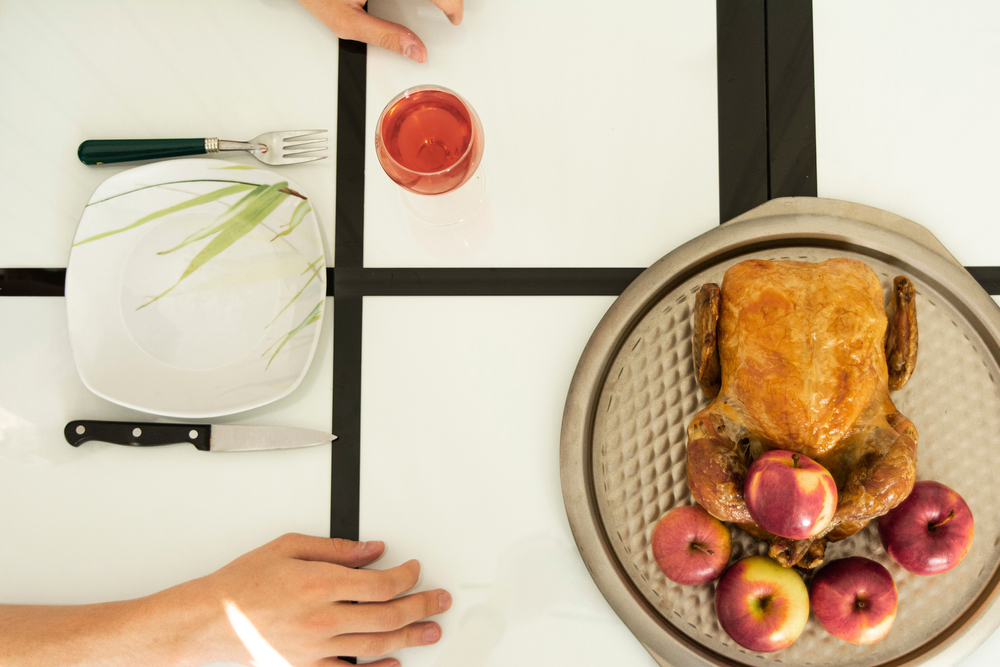The Don’t Ask Conundrum
“Those who ask don’t get, and those who don’t ask, don’t want!”
This was one of my grandfather’s favorite sayings; albeit delivered with a twinkle in his eye, but delivered nonetheless – mostly when he caught my siblings and I looking hopefully at the sweetie-tin on the mantlepiece, the ice-cream van in the park, or the last chocolate biscuit on the tea-trolley.
It would be many years before I learned about double-binds as a therapeutic concept, but even at six years old, the conundrum was not lost on me.
Ask and you’d appear ungrateful for what you’d already been given. Even worse, you’d put a kindly elder in the heartbreaking position of giving up something they were saving for themselves because they didn’t want to say no to a child.
Don’t ask, and nobody would realize you were even interested. “Well, since no-one else wants it,” my father would say, helping himself to the last of my grandmother’s perfectly crispy roast potatoes, right in front of our forlorn, puppy-dog eyes.
Because when you can’t ask, puppy-dog eyes are your only recourse. You gaze longingly at what you desire, and then beseechingly at the person with the power to grant it, in the hope that they might notice, take pity on you, and offer it up. The trick is to be obvious enough to get your grandfather’s attention but subtle enough not to arouse your dad’s, because he’s been playing the game for longer, and is better at it than you are. He’s also acutely attuned to how your behavior around his parents might reflect badly on him.
“Say please!” “Say thank you!” “Don’t be greedy!” “I think you’ve had enough!”
With upbringings like that, it’s no wonder we all have such a hard time asking for what we want; why we drop hints and send indirect signals that can be quietly ignored by the receiver or briskly denied by the sender should they inadvertently make anyone upset. But it only takes a few years of marriage for the puppy-dog eyes to slowly degenerate into glares towards the overflowing trash-can interspersed with some stomping about, banging of cupboard doors and a sarcastic “nothing!” when asked what’s wrong.
Our biggest difficulty – and women, I’m mostly talking to you – is that despite what fairy tales and Disney would have us believe, significant others don’t typically swoop in to heal all the wounds of childhood and indulge us benevolently like our grandparents did (or should have). They don’t yet have the wisdom, the life-perspective – or frankly, the time – to anticipate and meet our needs as much as we might want, expect, or feel entitled to. And – if they’re anything like most of the men who come to me for couples therapy – they’re probably just expecting us to meet our own needs, which is what they’ve learned to do for themselves.
Incidentally, meeting our own needs is a reasonable – if not entirely relational – solution to the don’t ask conundrum. A more relational solution, honestly, is to just use our words. Which means that next time we want our significant other to unload the dishwasher, take the kids to a dental appointment or share the last profiterole, we should try just asking – preferably in the same tone of voice we would use to ask a co-worker to help us move a table. Our significant other gets to respond with a yes, a no or a counteroffer. They don’t get to ignore the request, judge the request as ridiculous or say yes and not follow through – because all those would be anti-relational. And why would anyone be anti-relational when we’ve asked them so nicely?
Unless we forgot to say please.
Jane McCampbell-Stuart is a licensed marriage & family therapist and relational coach. She works with individuals and couples, encouraging relationality and helping all of us become the very best version of ourselves. Find her at therapyjane.com.




 Book a session
Book a session 




